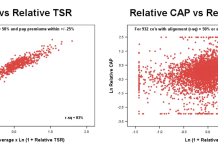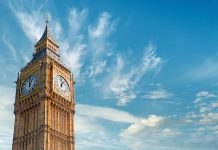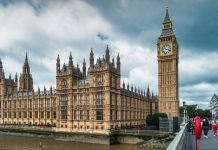Nicolas Béfort, NEOMA Business School professor and member of the Chair of Industrial Bioeconomy, predicts three scenarios for a new post-coronavirus world
An economic crisis is a moment of explosion, during which the very foundations of society are revealed. If the economic crisis linked to the coronavirus is often compared to that of the 2008 crisis, the ecological issue, which constitutes a major difference, is overlooked. However, comparing these two crises makes it possible to predict three scenarios for a new post-coronavirus world.
Coronavirus crisis
Small crises are localized and confined to a market or a sector, with notable but limited impacts. In contrast, a great crisis can open the way to profound transformations within society – therefore these crises can be moments of rediscovery and renewal. Just as the financial crisis did in 2008, the “coronavirus crisis” heralds a new world, where nothing will be the same. The post-2008 crisis world bought new debates and new policies – so what will happen in the post-coronavirus crisis?
You see, the coronavirus crisis is primarily ecological, unlike the great financial crisis of 2007-2008. Consequently, it brings into play the question of the collective mode of existence and collective means of material reproduction. However, like previous crises, after having questioned the nature of the crisis, the debate must be focused on society’s tools to respond to it.
In the context of the coronavirus crisis, three scenarios are emerging regarding the potential ‘new world’ that it will bring. The first scenario is the one that draws the most inspiration from the pre-crisis world. In addition to taking emergency measures such as containment, etc., the conditions for resuming identical production must be created with the maintenance of as many activities as possible.
First prediction
From this point of view, the division of supply chains and the distance between production and consumption is problematic only because of the external shock created by the spread of a virus on a global scale. Therefore, future health crises or ecological crises could be equivalent to financial crises. That is, capitalism could accommodate ecological crises that would be treated as localized crises to be dealt with a few extra measures. Thus, the depollution of Venice’s waters or the improvement of the air quality of confined countries would justify the quality of the environmental policies developed.
Second prediction
The second scenario considers the relocation of essential productive activities such as the production of medical goods. This scenario would be based on the idea that there would be a reinvestment into the state, where they would have increased autonomy over industrial policies and in the production of common goods such as health, transport and education. This opens windows of opportunities for diversity through sustainable activities such as organic agricultural production or localized as 3D printing centres producing medical equipment for caregivers. This scenario could, therefore, create conditions for “green growth” across countries.
Third prediction
The third scenario predicts that the coronavirus crisis will be a “great crisis”. That is to say, countries will re-examine their values at the heart of their economic, political, and most importantly, their ecological models. This will start with assessing their ecological limits to organize social demand, productive systems, and planning. This scenario takes into considering what is mentioned above such as the introduction of ecological reindustrialization and public investments, however, to restore growth, green or not, this third scenario opens up much greater development prospects than the previous two because it is a question of rethinking in-depth about the organization of production, trade and consumption.











